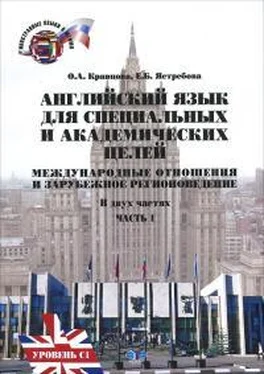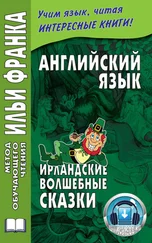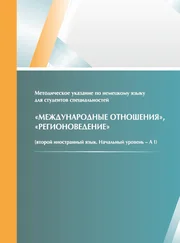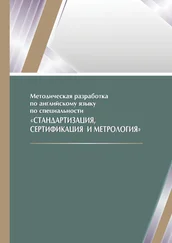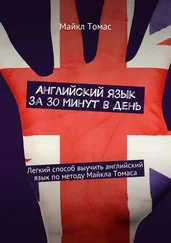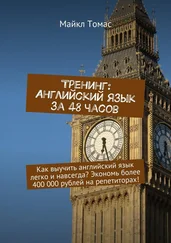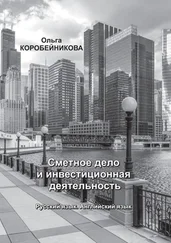5. Некоторые историки считают, что британское владычество вселило в покоренные народы, лишенные элементарных прав, чувство негодования и обиды, которое не прошло до сих пор. Другие полагают, что, несмотря на то, что репутация (record) Британской империи не является безупречной (незапятнанной), британское правление принесло бывшим колониям больше пользы, чем вреда.
6. Европейцам удалось создать новую форму государственного устройства, при которой государства отдают часть суверенитета наднациональным (supranational) институтам. В последнее время стало ясно, что этот союз не такой прочный, как казалось раньше.
7. Ежегодно британские войска подавляли происходившие одно за другим массовые восстания в разных частях империи.
8. Сторонники республиканской формы правления в Великобритании считают, что преданность короне иррациональна и держится на ностальгии и привычке.
9. Предположение, что шотландцы могут проголосовать за независимость, еще недавно казалось невероятным.
10. Нигерия, где свирепствует лихорадка Эбола (the Ebola Virus Disease — EVD), занимает 110 место в Глобальном индексе инноваций, рейтинге стран мира по показателю уровня развития передовых технологий.
Unit I. UK: from Empire to Democracy
Unit I. UK: from Empire to Democracy
Ex. 13. Complete the second sentence so that it has a similar meaning to the first sentence, using the word(s) given. Do not change the word(s) given.
1. He's a writer, but he often makes spelling mistakes. (BEING)
In _______________________________ a writer, he often makes spelling mistakes.
2. However hard Matt tried, he didn't succeed. (MATTER)
Matt didn't succeed _______________________________________ he tried.
3. Tom didn't feel like going out. (MOOD)
Tom ______________________________________________________ out.
4. Harry is taking his camera on holiday. He might want to take some photos of wildlife. (CASE) Harry is taking his camera on holiday ___________________________ to take some photos
of wildlife.
5. The plot was complicated, but I enjoyed the film a lot. (THOUGH) Complicated ___________________________, I enjoyed the film a lot.
6. Sam bought a computer as he intended to work from home. (VIEW)
Sam bought a computer ______________________________________ from home.
7. Sophie was a demanding boss because she was such a perfectionist. (BEING) __________________________________________ was a demanding boss.
8. It was stupid of the government to try to break the strike. (SHOULD) The government ________________________________ to break the strike.
9. In the USA only a few people have heard of our products. (ENTIRELY) Our products are ________________________________________ in the USA.
10. Refunds cannot be given under any circumstances. (NO) Under ___________________________________ be given.
11. It's my parents' twenty-fifth wedding anniversary next Saturday. (MARRIED) My parents _____________________________________ next Saturday.
12. Phil claimed that he had no involvement in the pensions scam. (DENIED) Phil _____________________________________________ in the pensions scam.
EAP CORNER
BRUSHING UP READING SKILLS
TASK 1
Scan the text to find the words in italics. Why do you think these words are italicized?
TASK 2 Read the article more thoroughly. Add more key words to the list below. Compare your list with that of your partner.
Key words: empire, decline, fall...
History in Retrospect
Historians have usually been kind to the British decision to wind down their empire without protracted resistance and often contrasted it with the ‘dirty' wars waged by the French in Indochina and Algeria. A pervasive historical myth (enthusiastically endorsed in political memoirs) suggests that the British excelled in the practice of ‘managed decline': the pragmatic adjustment of imperial ambition to shrinking resources. It was certainly true that they were extremely reluctant to resist mass political movements, whether in India after 1945 or in Africa after 1959. But they were much less unwilling to use military force where the odds were more promising and the incentives were greater: as in Malaya, Cyprus and Kenya. Nor was it true that British leaders quickly adjusted their vision of Britain's place in the world to its reduced physical power and economic potential. The reverse was the case for much of the time. The supposed apostle of pragmatism, Harold Macmillan, was anything but. His grandiose scheme for preserving British world power betrayed a flawed understanding of European politics and (much more understandably) almost no comprehension of the complex realities of African politics. [ ]
In fact, the long series of ‘misjudgements' — the false hopes of India, the false expectations in Africa, the vision of Britain as the third world power, the economic grand strategy built around the survival of sterling, the struggle to keep the Middle East imperium (the real cause of Suez*), the dream of an enduring but somehow inexpensive world role (‘Britain's frontiers are on the Himalayas') — reveal something more interesting than the wisdom of hindsight. They suggest that predicting historical change is a hazardous business: there are too many factors at play and far too much noise to decode the correct signals. They remind us especially that empires rarely decline at a predictable speed and even more rarely along a predicted path. The Ottoman Empire, to take an example at random, suffered a long series of setbacks from the mid seventeenth century. It was widely despised as the ‘sick man of Europe'. Yet it only broke up after 1918 at the end of an arduous military struggle against two of the world's greatest powers. The second example is even more salutary. Less than a decade before its sudden collapse, the Soviet Empire was regarded as an impregnable power and immune from the strains that dented American confidence in the aftermath of Vietnam. Its fall astonished the world. So it was hardly surprising that British leaders did not predict Britain's future correctly.
The final thought that might strike us is that explaining why empires collapse is often no easier than predicting their fall. Perhaps the most straightforward cases arise from defeat on the battle-
Unit I. UK: from Empire to Democracy
Unit I. UK: from Empire to Democracy
field — although explaining defeat may be part of the problem. The cases most often invoked fall into four groups: external defeat or geopolitical weakness; ideological contagion (зараза, заразная болезнь) and the loss of legitimacy; domestic enfeeblement at the centre of the empire — the loss of political will and economic capacity; and colonial revolt. Although it is sometimes attractive to see one cause as decisive (thus nationalists usually favour the effects of revolt), this rarely convinces — and certainly not in a large complex empire like that of the British. It might be better to see the break-up of empires as a kind of unraveling, in which failure in one sector sets up intolerable strains in others parts of the system. Adjusting to these creates further unpredictable stresses, until the whole system breaks up or is absorbed piecemeal (по частям) into a stronger successor. The argument in this book is that in the case of the British the long fuse was lit by their great geostrategic defeats of 1939-1942. Thereafter the whole balance of their system was badly upset, its legitimacy corroded, and the terms of collaboration with their clients and subjects decisively (if not immediately) altered. After 1945, British leaders struggled in vain to correct the imbalance, not least the fatal imbalance that shifted the burdens of empire so much more on to Britain itself. They planned to relieve the main stresses by conceding self-government and sometimes independence while preserving a prime influence in the old zones of rule. They were heartened by signs that their efforts were working and misled by the caution of their opponents and rivals. Until 1960, it was still possible to think that much of the fabric (in its most decentralized form) would still hold together. The threads had been loosened, not finally severed. But with one final tug (of economic and geopolitical change) all the connections were broken and the whole fell to pieces. It only remained to re-imagine the future — and invent a new past. (782 words)
Читать дальше
